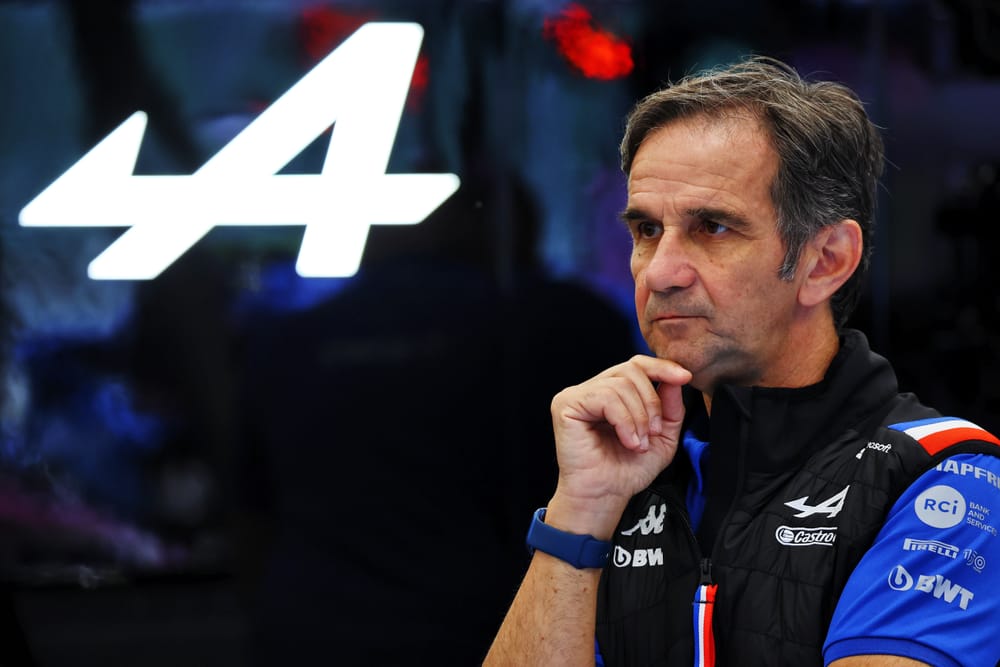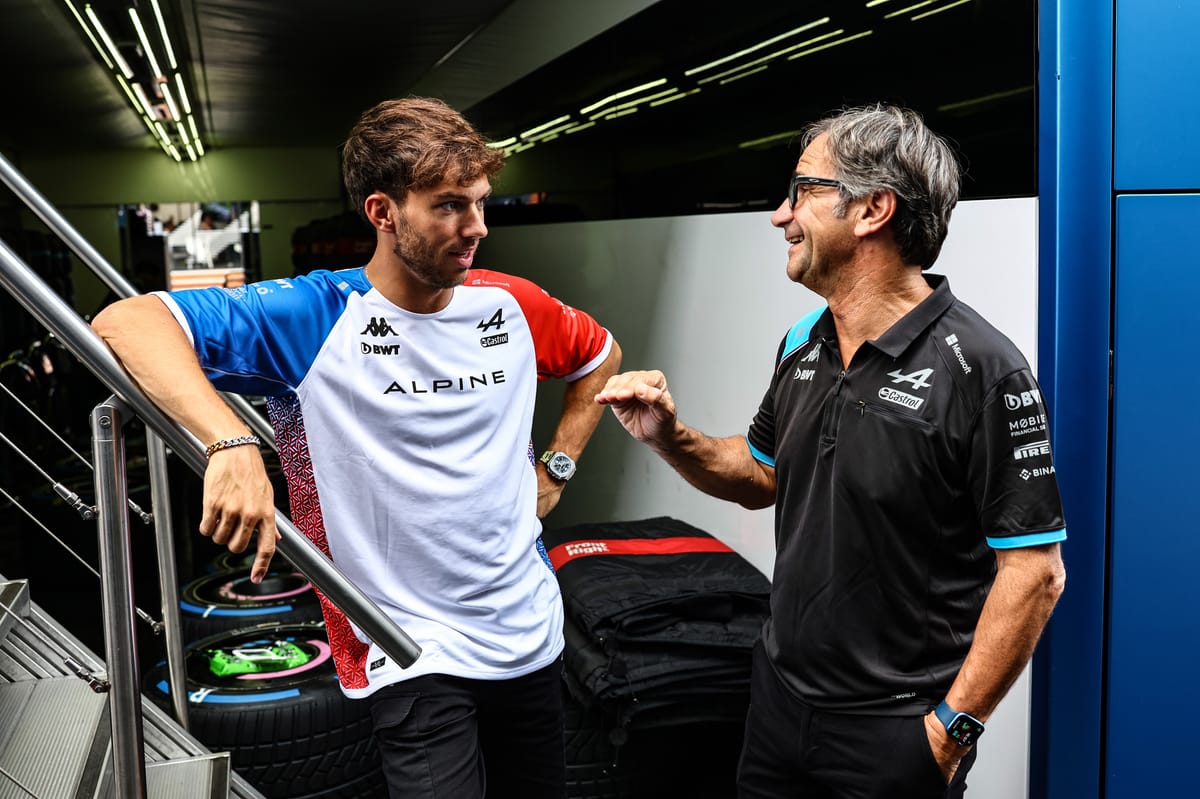Up Next

For sometime MotoGP-to-Formula 1 managerial convert Davide Brivio, the big reason for why his Alpine F1 stint came up short can seemingly be summed up in one word: "credibility".
Brivio had joined the rebranded Renault F1 works team ahead of 2021, straight after his MotoGP pièce de résistance - the capture of the 2020 premier-class riders' and teams' titles for Suzuki, a smaller-scale works team rebuilt from scratch for a manufacturer that had waited to reclaim the MotoGP title for nearly two decades.
For Brivio, it capped - at last at the time - a MotoGP stint that also included masterminding Valentino Rossi's blockbuster move from Honda to Yamaha and the success that followed.
But the now-59-year-old Italian cut a peripheral figure almost from the get go following his switch to Alpine and four-wheeled racing, first shifted away from F1 responsibilities and then splitting from the company completely.
Now back in the MotoGP paddock as the new team boss for the Trackhouse team, the NASCAR squad expanding to motorcycle racing as a satellite team for Aprilia, Brivio spoke to The Race MotoGP Podcast - and touched upon his F1 tenure.
"I’m glad, I’m very happy I had the chance to do it," he insisted. "I would have missed it if I didn’t do it. Even if it didn’t go as I thought, as I wanted.
"But it was a great opportunity for me to look inside. And of course I also met great people, I have friends there.
"It was an interesting time. Tough in certain moments, I admit. Quite tough. But looking back I’m happy I’ve done it.
"I would try it again but maybe with this experience it would be better."
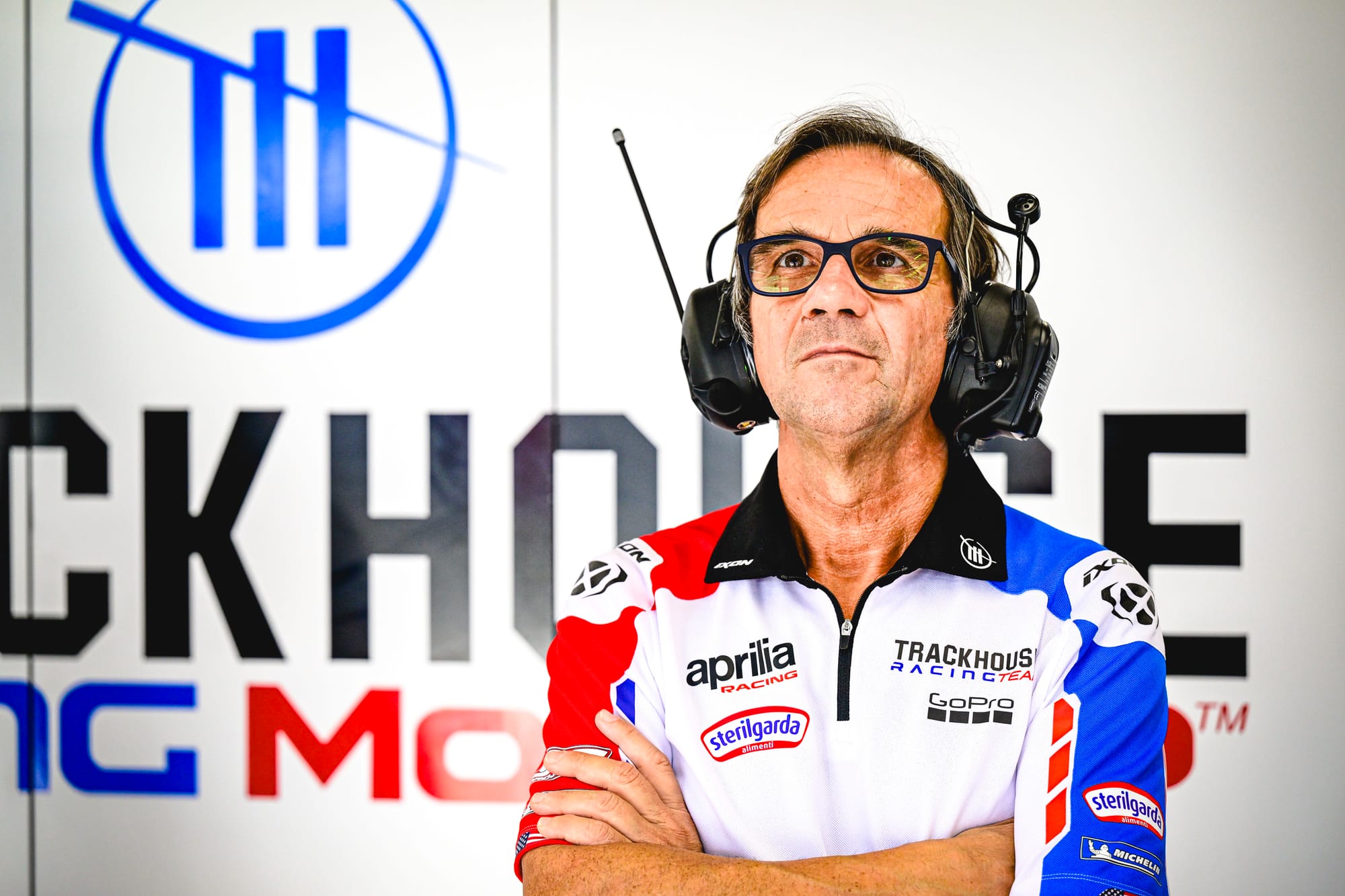
And when asked whether he understood why his Alpine gamble didn't work out the way he wanted it to, Brivio opened up perhaps more than ever before on his view of what the issues were.
"Yes, I understand… not I understand, I have my own ideas.
"I arrived in Formula 1 without previous experience. So probably without that Formula 1 credibility that you need to be a certain level.
"Because, when I joined Formula 1, I was in a management level. But I didn’t have the background - in Formula 1. I did in MotoGP.
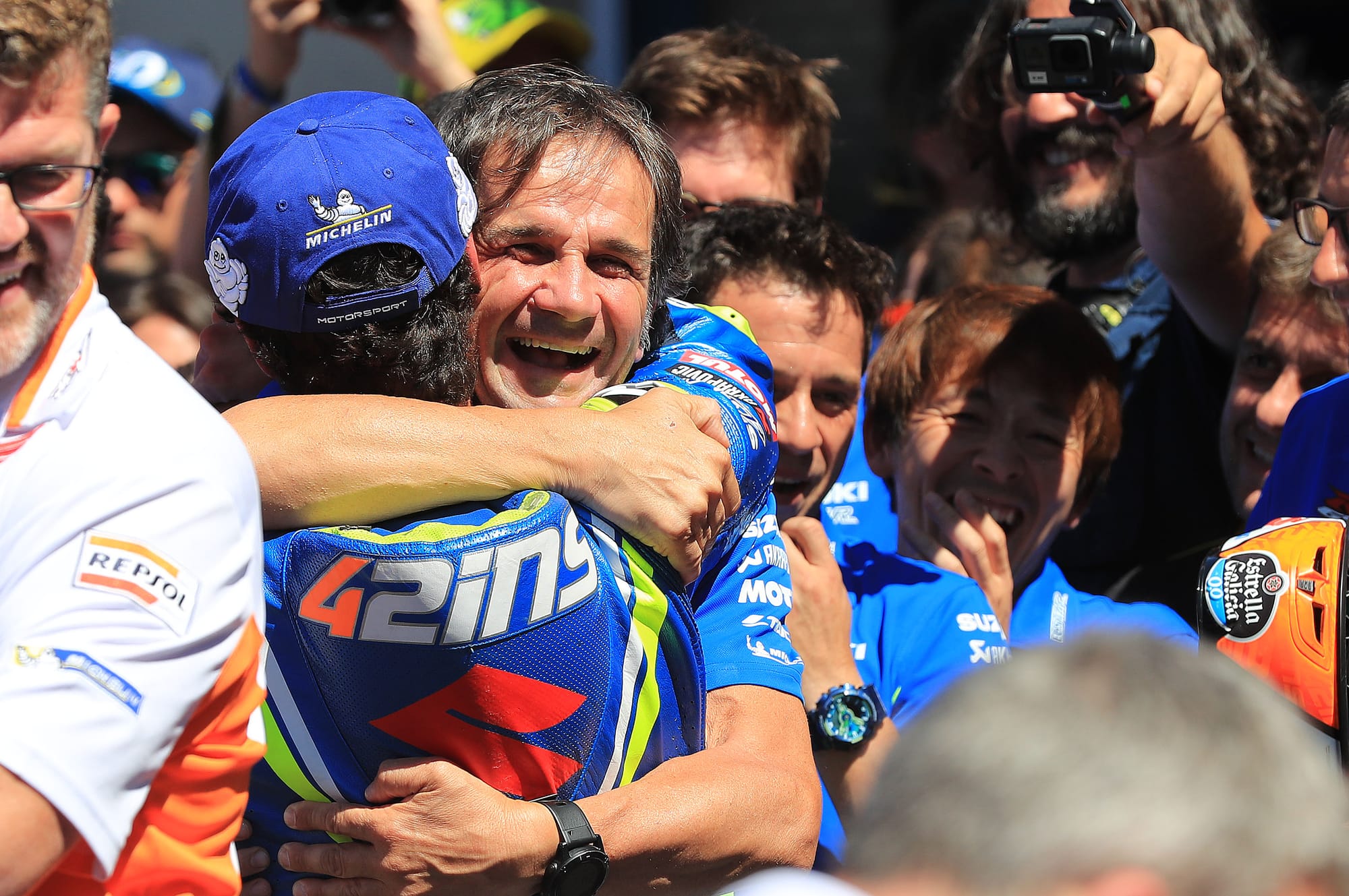
"In MotoGP I spent many years going through different roles and at the end ended up to be whatever - team manager, team principal, but with the experience.
"So when you arrive there you have the experience, you know the environment very well, you know the people and you’ve built your credibility - because if they bring you there, it’s probably because you deserved it, step by step.
"In Formula 1 I jumped there directly in a management job without this credibility."
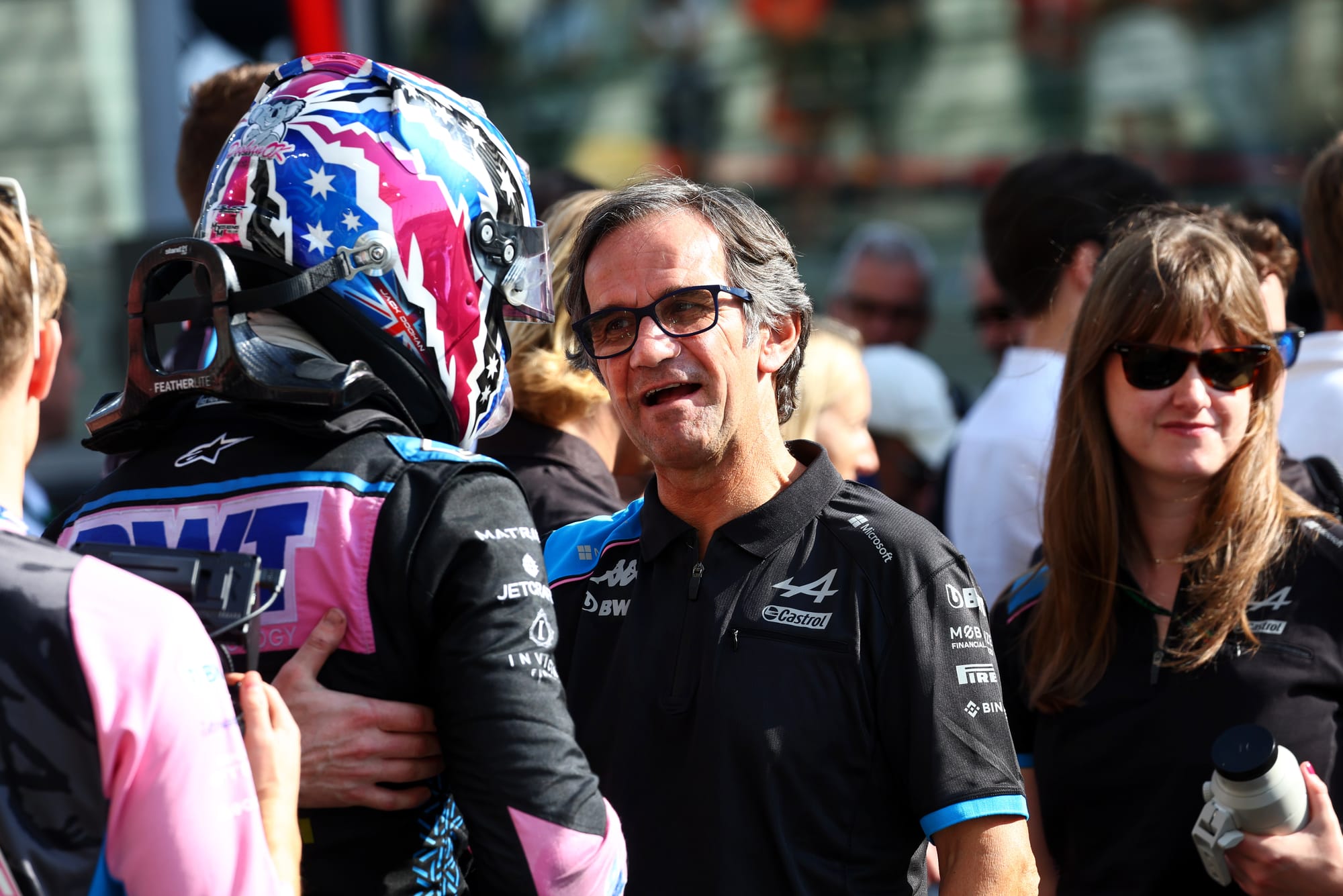
Brivio's theory aligns neatly with the outside perception of his hire - and, as a whole, the Alpine F1 operation and the metamorphoses it's been through.
Cyril Abiteboul had just been let go as Brivio arrived (and the team was changing from Renault yellow to Alpine blue), and he was never quite replaced 1-to-1, his responsibilities seemingly shared in some way by Marcin Budkowski and Brivio.
Budkowski was gone a year later, and Brivio's remit changed dramatically. And the upheaval never really stopped from there - most of the F1 higher-ups who were there in senior positions during Brivio's time were already out by the time he'd left at the end of 2023, and Alpine's recent dreadful start to 2024 has prompted another round of leadership changes (specifically on the tech side).
Ever since the 2016 takeover of Lotus, the Renault-owned team was never the beacon of leadership stability even if the degree of turnover has ratcheted up to scarcely-believable levels as of late - it is not particularly surprising to hear Brivio talk of a "credibility" gap.
By most accounts, he was a hire from the corporate level above rather than one initiated by the race team.
Therefore, the idea of the established senior F1 figures in that team struggling to buy fully into the idea of Brivio - and perhaps understandably both put off and alarmed by the spectre of an 'outside' hire with no F1 experience brought in to fix a programme lagging behind its publicly-stated targets - is hardly a far-fetched one.
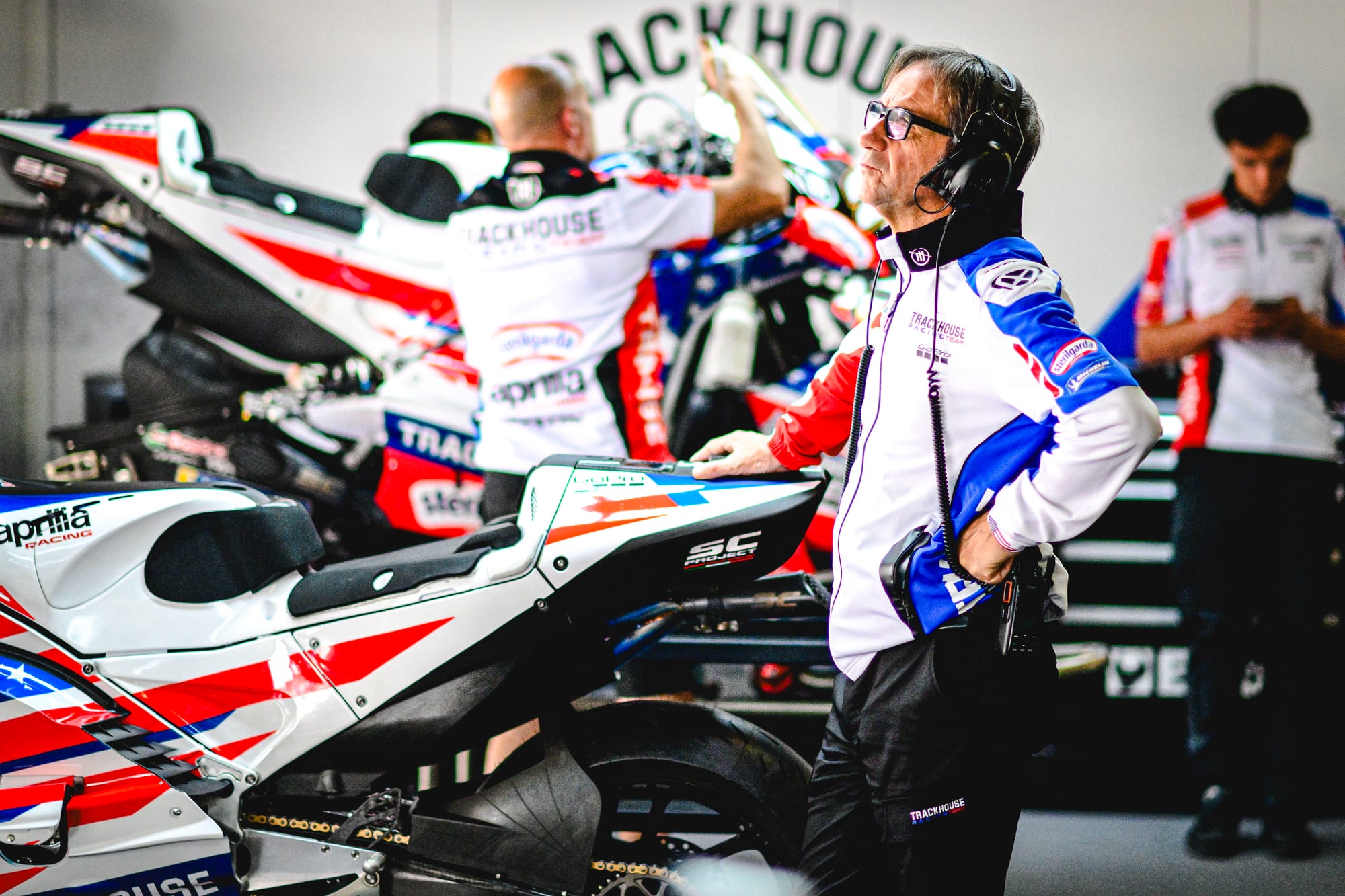
"Probably - I don't know, it's my idea! - it was more difficult to be a credible manager," Brivio continued.
"Not with everybody, but with some key people.
"And also I probably didn’t have enough experience to be there. Maybe too high, too soon.
"But that’s a lesson I learned.
"I’m glad I learned it. So as I say, I have no regrets.
"I’m very happy I have done this experience. It could have been different, but great experience for sure."
None of that means Brivio was or wasn't cut out to be a success in F1.
But what his feedback does suggest is that, for whatever he actually had to bring to the table in four-wheeled grand prix racing after his immeasurable success in MotoGP, Alpine was categorically the wrong place and the wrong time for that.


